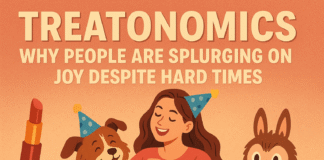
|
Getting your Trinity Audio player ready...
|
In its determined pursuit of environmental sustainability and eventual climate neutrality, the European Union (EU) is orchestrating a strategic overhaul of its packaging regulations. However, amidst the grand vision, a contentious battle is brewing over one particular aspect: a stringent crackdown on the burgeoning mountain of waste generated by our modern civilization.
The EU’s bold move takes direct aim at individually packaged portions, ranging from ketchup and coffee cream to single-use packaging from fast-food chains designed for on-site consumption. Even certain plastic packaging in retail establishments finds itself on the hit list, signaling a robust effort to curb waste in the interest of environmental preservation, as reported by NZZ.
The proposed revision of the EU’s packaging regulation has encountered resistance, notably from the packaging industry, which staunchly defends its role in ensuring food safety. The EU Commission, known for its eagerness to introduce new regulations, is surprisingly tapping the brakes this time, perhaps acknowledging the complex landscape of interests involved.

However, opposition extends beyond industry concerns. Certain countries, like France, foresee potential impacts on their traditional practices. The envisioned ban could prevent the sale of Camembert cheese in its iconic wooden packaging, disrupting a time-honored tradition. In southern Europe, proponents argue for individually packaged vegetables, citing extended shelf life as a crucial factor.
Amidst this intricate dance of interests, some EU parliamentarians approach the proposed measures cautiously, wary of feeding into the narrative of Eurosceptics critical of Brussels’ regulatory fervor. With upcoming elections in June 2024, the political landscape adds another layer of complexity.

Responding to criticism, the EU Parliament has recently diluted the bill, yet the overarching goal remains ambitious: a five percent reduction in packaging volume by 2030 and a staggering 15 percent by 2040. The vision extends further, aspiring to make all packaging recyclable by 2030. Certain casualties have been spared, such as the abandonment of the ban on individually portioned items like ketchup and the continued allowance of French cheese in wooden boxes.
However, some items, including shampoo bottles in hotels, shrink wrap for airport suitcases, and thin plastic carrier bags, face an imminent ban. The Lindt gold bunny, a cultural icon, stands uncertain in the face of these regulations, as the EU emphasizes its commitment to “minimize” packaging, targeting any deemed “superfluous.”
Swiss companies, key players in EU exports, are not exempt from the regulatory shake-up. The underlying principle is clear: to engage in trade within the EU’s internal market, adherence to its evolving rules is non-negotiable. Even as the proposed revision offers exemptions for small businesses with fewer than ten employees, the broader impact of these regulations on the business landscape remains a focal point of intrigue and concern.


















